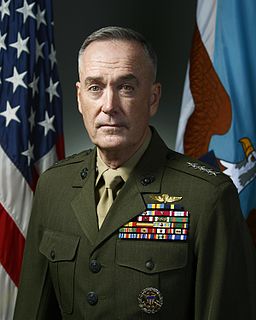A Quote by Jimmy Carter
Before I became President, in the aftermath of the Vietnam War, there had been fairly dramatic, and I think excessive, reductions in the capability of our military forces, and as a former military man myself - I was a professional naval officer, a submarine officer - I thought it was better, on a step-by-step, very carefully planned way, to increase the technical, or technological, capability of our weapons systems.
Quote Topics
Aftermath
Became
Been
Before
Better
Capability
Carefully
Dramatic
Excessive
Fairly
Forces
Former
Had
Increase
Man
Military
Military Force
Military Man
Myself
Naval
Officer
Our
Planned
President
Professional
Step
Submarine
Systems
Technical
Technological
Think
Thought
Very
Vietnam
Vietnam War
War
Way
Weapons
Related Quotes
The intellectual and moral failures common to America's general officer corps in Vietnam and Iraq constitute a crisis in American generalship. Any explanation that fixes culpability on individuals is insufficient. No one leader, civilian or military, caused failure in Vietnam or Iraq. Different military and civilian leaders in the two conflicts produced similar results. In both conflicts, the general officer corps designed to advise policymakers, prepare forces and conduct operations failed to perform its intended functions.
I have experienced the intensity of patriotism as a submarine officer, the ambitions of a competitive businessman, and the intensity of political debate. I have been sorely tempted to launch a military attack on foreigners, and have felt the frustration of having to negotiate with allies or even former enemies to reach a consensus instead of taking more decisive unilateral action.
My evaluation of President George W. Bush is nothing personal. He's a lovely person. Sadly, I believe he will be remembered for taking us into war unnecessarily at the cost of thousands of American lives, injuries to tens of thousands of our troops, and trillions of dollars to our economy - enormous costs to our reputation, and undermining the capability of our military to protect us. That, I think, will be the overwhelming issue for which his presidency will be remembered: extensive damage to our country.
It is not unimaginable to have military options to respond to North Korean nuclear capability. What's unimaginable to me is allowing a capability that would allow a nuclear weapon to land in Denver, Colorado. That's unimaginable to me. So my job will be to develop military options to make sure that doesn't happen.
We need not only an executive to make international law, but we need the military forces to enforce that law and the judicial system to bring the criminals to justice before they have the opportunity to build military forces that use these horrid weapons that rogue nations and movements can get hold of - germs and atomic weapons.
This Iraq war has been the most "privatized" war in America's history. It has seen the most extensive use of contractors. The contractors have increased the costs; but they have been necessary - the military simply could not have done it on their own. we would have had to increase the size of the military. But the George W. Bush Administration wanted America to believe that it could have a war, essentially for free, without raising taxes, without increasing the size of the armed forces.


































